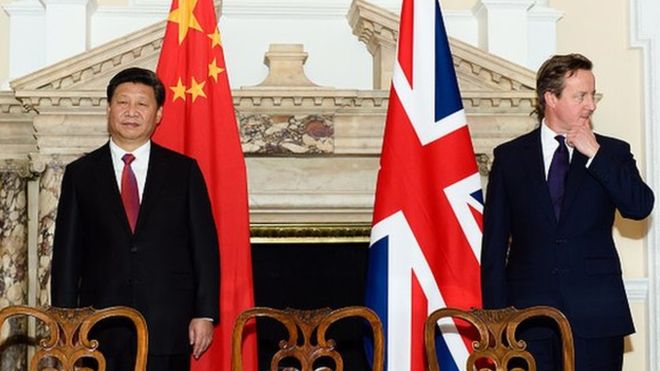To know more about the impact of Brexit in China, contact us at dx@daxueconsulting.com
What are the impacts of Brexit in China
With the United Kingdom opting to leave the European Union, speculations have arisen as to what the impact of Brexit will be on the Chinese economy. We’ve seen more activity between China-Germany than the UK. Western Europe collectively has been a big destination for outbound investment but the majority of that hasn’t been into the UK”. Klaus Kleinfeld, Alcoa chief executive, concurs saying “Brexit won’t have a substantial impact on China. The UK doesn’t play as important of a role than other countries in the EU.” Fortune has a less one-sided verdict of Brexit, arguing that as Chinese leaders tally up the losses and gains from Brexit, they are likely to have mixed feelings. In this article, the losses and gains of Brexit for China will be discussed and assessed.
What are the disadvantages of Brexit for China?
Economically, Brexit may be terrible news for China. Even though the UK, which had $78.5 billion in bilateral trade with China in 2016, is not amongst China’s top trading partners in the world, Brexit will nonetheless have a considerable impact on China’s ability to export its goods and services abroad. China is reliant on being able to export its products to the West for a sustained economic growth. Indeed, China can be perceived as the greatest beneficiary of globalisation and free trade. However, it appears that several political leaders in the West will roll back on free trade in response to the anger and frustrations of their voters who have felt threatened, and even victimised, by globalisation.
Hence Brexit may be the beginning of the end of globalisation, with Western countries retracting into themselves, and putting stronger restrictions on free trade in an effort to protect their strategic and economic interests. Brexit may very well have a domino effect, as several political groups in many EU-countries have gained momentum after Britain opted out. Political commentators speculate that Denmark and Sweden will be the first to go, as these countries may desire to follow the path of Norway, one of the few Western countries that are not a member of the EU. Scandinavian countries have a culture of distancing themselves from the politics of the larger countries in central Europe, and hence anti-EU political groupings in Denmark and Sweden are gaining sympathy and momentum.
If Brexit is the beginning of the end of globalisation, then Chinese exports will suffer considerably, which will have a severely negative impact on the Chinese economy.
What are the benefits of Brexit for China?
The benefits of Brexit are largely of a political nature. Brexit may be a godsend for Chinese propagandists, who have lost no time in portraying the event as a convincing example of the dysfunction of democracy. Until recently, China viewed a strong and integrated Europe as a counter-balance to American hegemony. However, now a strong and united Europe is no longer in China’s strategic interests because of the risk that the United States and Europe could form a strategic alliance and gang up on and contain China the same way they contained the Soviet Union. Hence China’s geopolitical interests with respect to China has undergone a shift. It has shifted from cultivating ties with individual European countries and pitting them against each other. As of yet, the EU has not developed an appropriate response to Beijing’s “divide and conquer” tactics.
So far, Beijing’s strategy has proven successful. Most European countries have their own unique policies towards China, which subordinates human rights issues to security issues and commercial interests. This can be seen in European political leaders’ refusal to meet the Dalai Lama in their countries. Moreover, after China announced the establishment of the Asian Infrastructure Investment Bank (AIIB) last year, all the major European countries, led by the UK, rushed to join, against the will of the United States. Hence Western nations do not seem united in their political and economic responses towards China.
Since the British has left the EU, the EU will be even weaker. A diminished and fragmented Europe will have difficulties standing up to China, and its internal conflicts will reduce its value and attractiveness as a political and economic strategic partner for the U.S.
In conclusion, Brexit is likely to give China mixed feelings. Chinese businesses and Beijing’s pragmatists will undoubtedly prefer the economic security of the pre-Brexit world, with increased globalisation and increased profits for Chinese exports. On the other hand, Chinese officials – concerned with China’s geopolitical interests, and desiring a world where China’s strategic interests cannot be threatened by a united West – are likely to celebrate Brexit as a geopolitical victory.
Article edited by SJ Grand Financial & Tax advisory and Daxue Consulting Market Research in China
Follow us on Twitter tp see China’s market latest news:
Eye-Tracking in #China: Understanding Chinese Consumer Behavior https://t.co/Pa3grc8BZc#marketresearchpic.twitter.com/vRX6cgrhrr
— Daxue Consulting (@DaxueConsulting) July 19, 2016
Picture Source: www.bbc.co.uk




